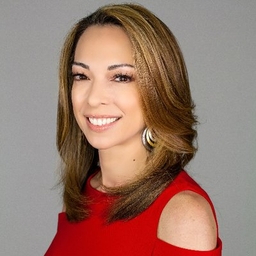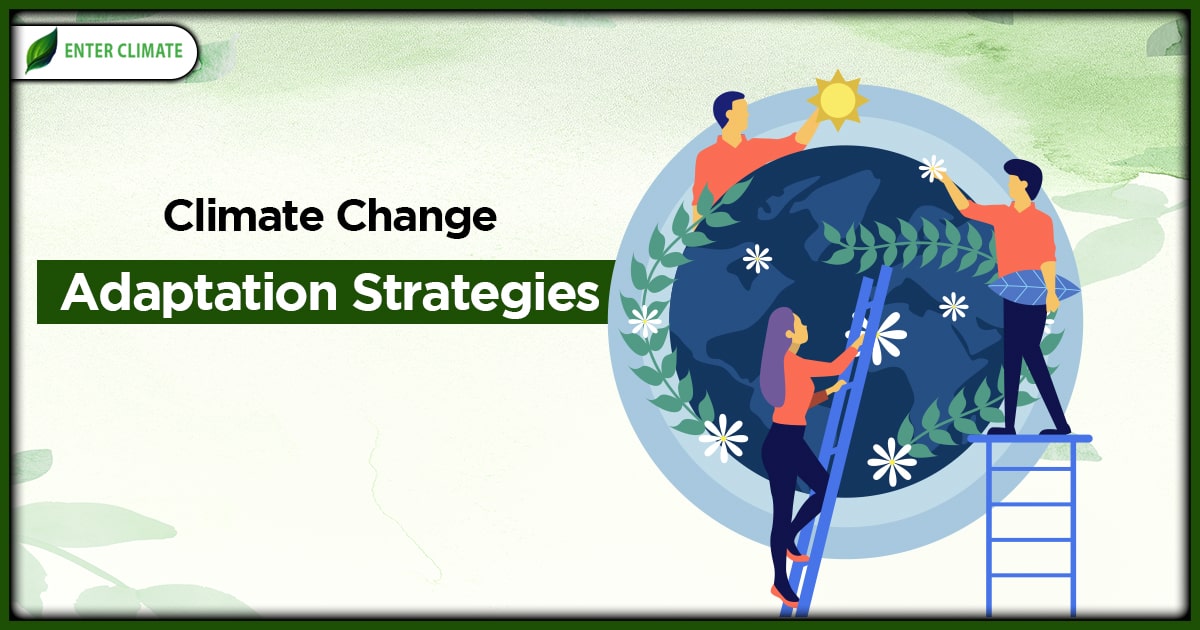2025 FIBA Women’s AfroBasket: A Report on Sporting Excellence and Sustainable Development
Introduction: A Platform for Empowerment and Growth
The 2025 FIBA Women’s AfroBasket tournament, scheduled to be held in Abidjan, Côte d’Ivoire, from July 26 to August 3, represents a significant event for continental sport. Twelve national teams will compete, following intensive preparation phases. This report analyzes the competitive landscape of the tournament, placing significant emphasis on its alignment with the United Nations Sustainable Development Goals (SDGs). The event serves as a powerful platform for promoting Gender Equality (SDG 5), Good Health and Well-being (SDG 3), and fostering Peace, Justice, and Strong Institutions (SDG 16) across Africa.
Team Analysis and Sustainable Development Goal Alignment
The following power rankings provide a subjective assessment of each team’s competitive potential, integrated with an analysis of their contribution to key SDGs.
-
Nigeria
- FIBA World Ranking: 11th
- Competitive Outlook: As the reigning champions, Nigeria remains a formidable contender. The team’s core, composed of players who have consistently dominated African basketball, ensures a high level of performance.
- SDG Alignment:
- SDG 5 (Gender Equality): The D’Tigresses serve as powerful role models, empowering women and girls across the continent and demonstrating female leadership in sport.
- SDG 16 (Peace, Justice, and Strong Institutions): Their sustained success reflects a strong, well-managed national basketball federation, contributing to the development of robust sporting institutions.
-
Mali
- FIBA World Ranking: 24th
- Competitive Outlook: Mali presents a strong challenge for the title with a roster of talented players, including Sika Kone of the WNBA’s Washington Mystics. Their victories in preparatory matches against Senegal and Côte d’Ivoire underscore their readiness.
- SDG Alignment:
- SDG 8 (Decent Work and Economic Growth): The presence of players in top international leagues like the WNBA highlights viable career pathways in professional sports for African women.
- SDG 3 (Good Health and Well-being): The team’s high level of competition promotes active and healthy lifestyles.
-
Senegal
- FIBA World Ranking: 27th
- Competitive Outlook: Motivated by a decade-long title drought and strengthened by the strategic appointment of championship-winning coach Otis Hughley, Senegal is a prime contender. The team possesses a deep and competitive roster.
- SDG Alignment:
- SDG 16 (Peace, Justice, and Strong Institutions): Investing in experienced international coaching demonstrates a commitment to building institutional capacity and achieving excellence.
- SDG 5 (Gender Equality): The national drive to reclaim the title elevates the status of the women’s team, promoting equality in sport.
-
Mozambique
- FIBA World Ranking: 32nd
- Competitive Outlook: Despite the absence of a key player, Mozambique’s performance is elevated by the veteran leadership of Leia Dongue and Ingvild Mucauro. The team benefits from the extensive experience of Head Coach Nasir Sale.
- SDG Alignment:
- SDG 17 (Partnerships for the Goals): The long and successful careers of its players and coach illustrate a sustainable ecosystem built on long-term collaboration and development.
-
Uganda
- FIBA World Ranking: 52nd
- Competitive Outlook: The Ugandan team, known as the Gazzelles, is poised to challenge the established order. Their recent regional success and the high-level play of Jane Asinde and Paige Robinson make them a highly competitive and ambitious squad.
- SDG Alignment:
- SDG 10 (Reduced Inequalities): Uganda’s ambition to “rewrite the narrative” for East African teams actively works to reduce regional disparities in sporting achievement and recognition.
-
Cameroon
- FIBA World Ranking: 44th
- Competitive Outlook: A recent victory over Rwanda in a preparatory game signals Cameroon’s potential. The combination of veteran players like Jessica Thomas and Dulcy Fankam with emerging talent suggests they could be a disruptive force in the tournament.
- SDG Alignment:
- SDG 16 (Peace, Justice, and Strong Institutions): The successful integration of young talent with established players indicates a focus on sustainable program development and long-term institutional strength.
-
Côte d’Ivoire
- FIBA World Ranking: 53rd
- Competitive Outlook: As the host nation, Côte d’Ivoire benefits from strong home-crowd support, a factor that has historically boosted their performance. The return of Kariata Diaby further raises expectations for a top-three finish.
- SDG Alignment:
- SDG 8 (Decent Work and Economic Growth): Hosting the tournament stimulates the local economy of Abidjan through tourism, hospitality, and event management jobs.
- SDG 11 (Sustainable Cities and Communities): The event fosters community engagement and national pride, strengthening social cohesion.
-
Angola
- FIBA World Ranking: 46th
- Competitive Outlook: Angola arrives with a renewed team focused on developing its next generation of stars, including Sara Caetano and Alexia Dizeko. A training camp in Spain provided valuable preparation, but their overall competitiveness remains to be proven.
- SDG Alignment:
- SDG 17 (Partnerships for the Goals): The team’s international training camp in Spain is a clear example of global partnerships for development and skill enhancement.
- SDG 4 (Quality Education): Investing in young players provides them with invaluable experience and development opportunities through sport.
-
South Sudan
- FIBA World Ranking: 86th
- Competitive Outlook: As debutants, the Bright Starlets are an unknown quantity. However, the appointment of experienced coach Alberto Antuna signals a serious intent to be competitive and establish their presence on the continental stage.
- SDG Alignment:
- SDG 16 (Peace, Justice, and Strong Institutions): For a young nation, participation in a major international tournament is a significant step in nation-building and fostering peace through sport.
- SDG 10 (Reduced Inequalities): Their first-ever appearance provides a global platform and an opportunity to challenge inequalities, creating a new narrative for the nation in sport.
- SDG 5 (Gender Equality): The establishment and promotion of a women’s national team is a fundamental step toward gender equality.
-
Egypt
- FIBA World Ranking: 37th
- Competitive Outlook: Egypt’s prospects have been impacted by injuries to key players Nadine Mohamed and Jana Elalfy. The team’s performance will depend heavily on the strategic adjustments made by new coach Julian Martinez.
- SDG Alignment:
- SDG 3 (Good Health and Well-being): The team’s situation highlights the critical importance of athlete health, injury prevention, and institutional support systems.
-
Rwanda
- FIBA World Ranking: 86th
- Competitive Outlook: While the team features high-caliber talent like former WNBA player Keisha Hampton and rising star Bella Murekatete, a last-minute injury to Ineza Sifa creates uncertainty for their campaign.
- SDG Alignment:
- SDG 17 (Partnerships for the Goals): The inclusion of players with experience in top global leagues like the WNBA demonstrates successful international collaboration and talent exchange.
-
Guinea
- FIBA World Ranking: 91st
- Competitive Outlook: Coached by former international player Malick Kone, Guinea fields a capable roster. Their primary objective will be to outperform their ranking and prove their competitiveness among the continent’s elite.
- SDG Alignment:
- SDG 10 (Reduced Inequalities): Guinea’s participation provides an opportunity to challenge the hierarchical nature of rankings and demonstrate that all nations can compete and contribute to the continent’s sporting landscape.
DISCLAIMER: The Power Rankings presented in this report are subjective and intended for analytical purposes only. They do not constitute an official FIBA ranking system. All commentary reflects the professional opinion of the author.
1. Which SDGs are addressed or connected to the issues highlighted in the article?
-
SDG 5: Gender Equality
The article is entirely focused on the FIBA Women’s AfroBasket, a premier international basketball tournament for women. This highlights the participation and empowerment of women in a high-profile sporting event, directly connecting to the goal of achieving gender equality and empowering all women and girls.
-
SDG 3: Good Health and Well-being
The article implicitly promotes well-being through participation in sports. It also directly addresses the health of the athletes by mentioning player fitness and injuries, such as “Nadine Mohamed suffered an injury” and the concern over “Ineza Sifa, who hurt herself at the last minute.” This connects to ensuring healthy lives and promoting well-being for all at all ages.
-
SDG 16: Peace, Justice and Strong Institutions
The article’s mention of South Sudan’s debut in the tournament is significant. It states, “The South Sudanese team is playing in the competition for the first time.” The inclusion of a team from a nation that has experienced significant conflict represents progress in building national institutions (like a national basketball federation) and promoting inclusive participation in the international community.
-
SDG 17: Partnerships for the Goals
The article highlights several instances of international cooperation. For example, Angola held “A two-week training camp in Spain,” and teams hired foreign coaches, such as Senegal signing “Otis Hughley, a smart basketball coach who led Nigeria,” and South Sudan signing coach “Alberto Antuna, who most recently coached Senegal.” These actions demonstrate partnerships for sharing knowledge and resources to achieve common goals.
2. What specific targets under those SDGs can be identified based on the article’s content?
-
Target 5.5: Ensure women’s full and effective participation and equal opportunities for leadership in political, economic and public life.
The article is a testament to this target. The participation of twelve national women’s teams, featuring prominent female athletes like “Sika Kone, along with Maimouna Haidara and Djeneba N’Diaye,” in a major continental tournament is a clear example of women’s full and effective participation in public life through sport.
-
Target 3.4: By 2030, reduce by one third premature mortality from non-communicable diseases through prevention and treatment and promote mental health and well-being.
The entire event promotes physical activity, a key factor in preventing non-communicable diseases. The article’s focus on the athletes’ physical condition, noting when players are “all healthy and available” versus injured, underscores the importance of well-being in achieving peak performance.
-
Target 16.7: Ensure responsive, inclusive, participatory and representative decision-making at all levels.
The inclusion of South Sudan’s “Bright Starlets” in the tournament for the first time is a direct reflection of this target. It demonstrates an inclusive approach by the governing body (FIBA) and the development of participatory national structures within South Sudan, allowing them to be represented on a continental stage.
-
Target 17.17: Encourage and promote effective public, public-private and civil society partnerships, building on the experience and resourcing strategies of partnerships.
The cross-border collaborations mentioned in the article serve as examples of this target. Angola’s training camp in Spain and the international hiring of coaches by Senegal and South Sudan are partnerships that leverage international experience and resources to strengthen national teams.
3. Are there any indicators mentioned or implied in the article that can be used to measure progress towards the identified targets?
-
Indicator for Target 5.5
- The number of women’s national teams (12) participating in the AfroBasket tournament serves as a direct indicator of women’s participation in international sports. The article lists all twelve teams, from Nigeria to Guinea.
-
Indicator for Target 3.4
- The health and fitness status of the players is an implied indicator. The article uses player health as a key factor in its power rankings, noting Cameroon’s potential “if Jessica Thomas, Dulcy Fankam and rising stars… are all healthy and available” and Egypt’s decline because “two of their most talented players are out” due to injury.
-
Indicator for Target 16.7
- The participation of new or post-conflict nations is a key indicator of inclusivity. The article explicitly points this out: “The South Sudanese team is playing in the competition for the first time,” which measures the expansion of representation in such events.
-
Indicator for Target 17.17
- The number and nature of international collaborations are implied indicators. The article provides specific examples that can be tracked, such as “A two-week training camp in Spain” for Angola and the hiring of international coaches for at least two different national teams (Senegal and South Sudan).
4. Create a table with three columns titled ‘SDGs, Targets and Indicators” to present the findings from analyzing the article.
| SDGs | Targets | Indicators |
|---|---|---|
| SDG 5: Gender Equality | Target 5.5: Ensure women’s full and effective participation and equal opportunities for leadership in public life. | Participation of 12 national women’s teams in the FIBA Women’s AfroBasket tournament. |
| SDG 3: Good Health and Well-being | Target 3.4: Promote mental health and well-being. | The health status of athletes, as noted by mentions of player fitness (“all healthy and available”) and injuries (“Nadine Mohamed suffered an injury”). |
| SDG 16: Peace, Justice and Strong Institutions | Target 16.7: Ensure responsive, inclusive, participatory and representative decision-making. | The first-time participation of South Sudan (“The South Sudanese team is playing in the competition for the first time”), demonstrating inclusive participation. |
| SDG 17: Partnerships for the Goals | Target 17.17: Encourage and promote effective partnerships. | International cooperation, such as Angola’s training camp in Spain and the hiring of foreign coaches by teams like Senegal and South Sudan. |
Source: fiba.basketball







